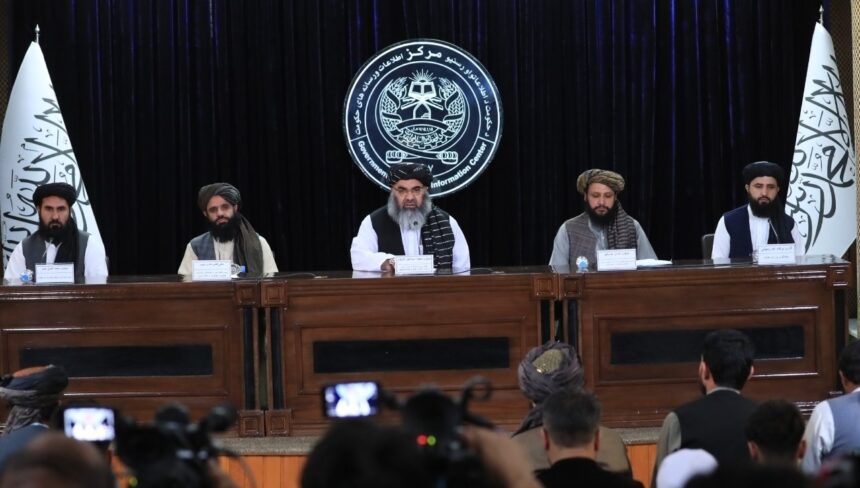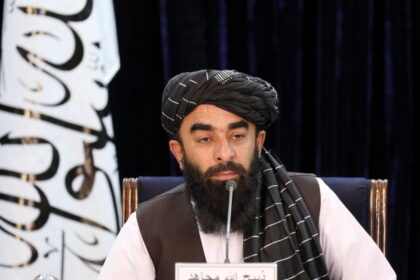RASC News Agency: The Taliban’s so-called Commission for the Prevention of Land Grabbing has announced the allocation of an enormous 370,000 acres of land for the construction of the “New Kabul City” project a move that has reignited widespread alarm over the regime’s opaque dealings with public property and its systematic marginalization of local stakeholders. According to Taliban officials, four companies are currently involved in the initial phases of the project, tasked with preparing the allocated land for urban development. However, critics have warned that the entire initiative is shrouded in secrecy, lacks public accountability, and may serve as yet another vehicle for unlawful expropriation and regime consolidation rather than genuine economic progress.
At a press conference held on Sunday, May 11, Mohammad Ismail Ghaznawi, a member of the commission, claimed that the Taliban had so far identified 49.7 million acres of previously “grabbed” land across Afghanistan, of which 3.9 million acres have been “reclaimed.” In Kabul alone, he said, around 66,000 acres had reportedly been recovered. Yet, these declarations have only deepened suspicions rather than dispelled them. The Taliban has failed to disclose critical details: the original ownership of the lands, the legal basis for their confiscation, or the mechanisms if any through which compensation or appeal would be possible. The lack of a legitimate judiciary, free press, or civil oversight in Taliban-controlled Afghanistan renders the process highly vulnerable to abuse, coercion, and political manipulation.
Independent observers have raised serious concerns that the Taliban’s land reclamation narrative is being weaponized to serve the interests of its loyalists, with vast tracts of land potentially redistributed to Taliban commanders, commercial cronies, or extremist patrons under the guise of “urban development.” Furthermore, the commission’s plan to establish a new Ministry for the Reclamation of Seized Lands has been criticized as a smokescreen to institutionalize arbitrary seizures. In a regime that thrives on fear and silences dissent, the absence of credible legal frameworks raises urgent questions about the rights of displaced individuals and marginalized communities.
“The Taliban is not developing a city it is displacing a nation,” said a Kabul-based civil rights advocate who requested anonymity. “They are transforming land policy into a tool of repression, removing people from ancestral properties while wrapping it in the language of reform.” The announcement comes at a time when Afghanistan’s civil space is critically restricted, and information about public projects is heavily censored. Journalists and activists attempting to investigate the New Kabul City initiative have faced intimidation, surveillance, and threats, while local communities have reported being excluded from all decision-making processes regarding their own lands. These developments further erode the fragile remnants of property rights in the country, where legal recourse has become virtually nonexistent under Taliban rule. The concentration of land in the hands of an unaccountable regime is not only unjust but dangerously destabilizing fueling resentment, deepening poverty, and laying the groundwork for future conflict.
What could have been an inclusive and transformative project for Afghanistan’s urban development has instead become a symbol of authoritarian expansion and institutional theft. With no independent judiciary, no elected representation, and no public consultation, the Taliban’s “New Kabul City” increasingly appears to be built not on dreams of prosperity, but on the ruins of dispossession. As the international community remains largely silent, Afghans once again find themselves at the mercy of a regime that governs through opacity and exclusion where land, like power, is hoarded and exploited, not shared.






